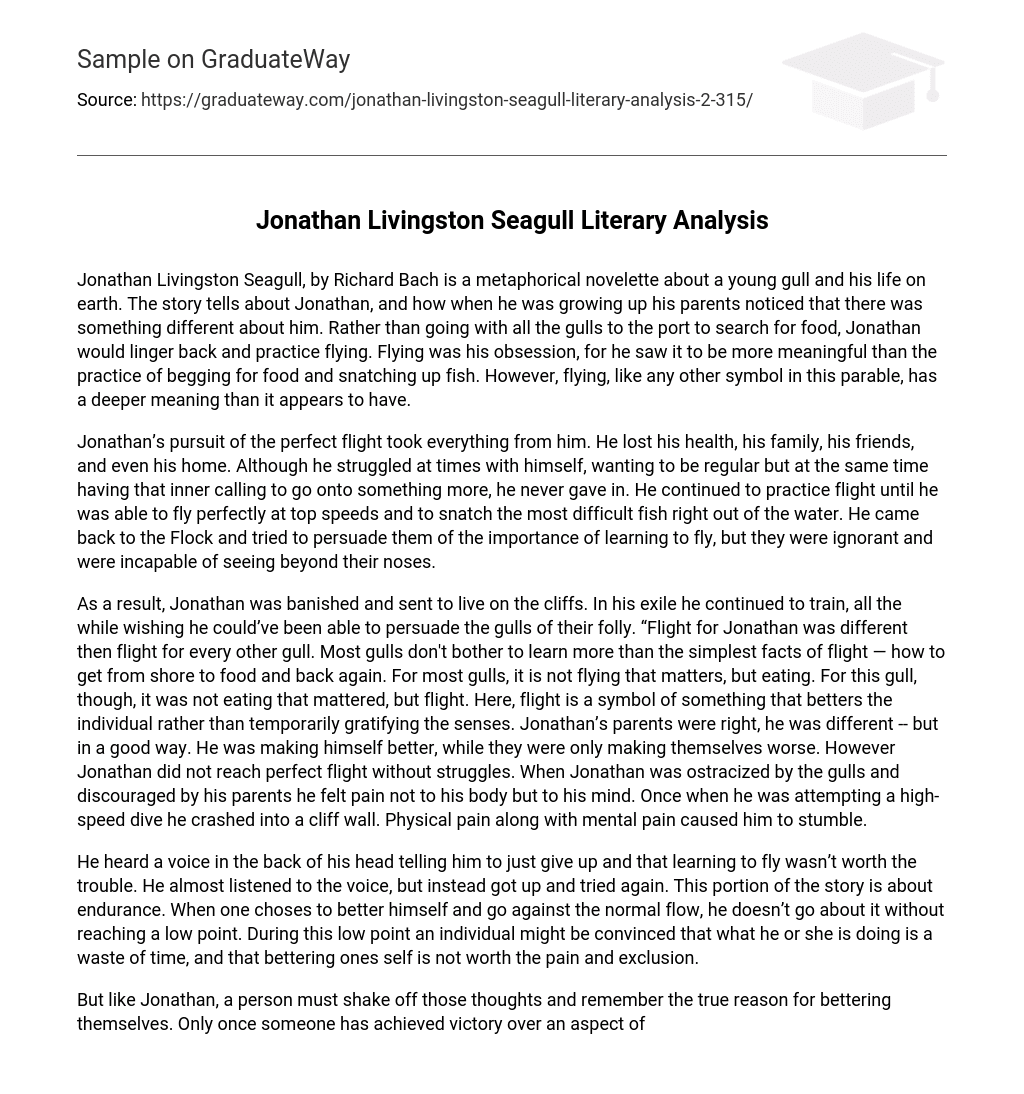Jonathan Livingston Seagull, by Richard Bach, is a metaphorical novelette that depicts the life of a young gull on earth. Jonathan stands out from his peers as he devotes himself to practicing flying instead of searching for food at the port like other gulls. His obsession with flying reflects a deeper meaning beyond the mere act of sustenance.
Jonathan’s relentless pursuit of the ideal flight cost him everything: his health, family, friends, and even his home. Despite grappling with his desire to conform and lead a normal life, his inner passion for something greater compelled him to persist. Through unyielding practice, he mastered flying at incredible speeds and effortlessly snatching the most challenging fish from the water. Upon rejoining the Flock, he endeavored to convince them of the significance of learning to fly. However, their ignorance and limited perspective hindered their ability to embrace his message.
Jonathan was banished and sent to live on the cliffs, continuing his training in exile. He longed to convince the gulls of their misguided ways. Unlike most gulls who only cared about flying for practical purposes, such as finding food, flight held a deeper meaning for Jonathan. It symbolized self-improvement rather than temporary satisfaction. While his parents made themselves worse, Jonathan embraced his uniqueness and strived for improvement. Nevertheless, his journey towards perfect flight was not without challenges. The gulls’ rejection and his parents’ disapproval caused him both physical and mental pain. During a high-speed dive, he crashed into a cliff wall, experiencing both physical and mental agony.
Despite hearing a voice in the back of his head discouraging him from learning to fly, he defied it and persisted. This part of the story emphasizes the concept of endurance. When one decides to improve themselves and go against the conventional path, they are likely to encounter setbacks. These setbacks may lead them to believe that their endeavors are futile and the hardships they endure are not worth the effort and isolation.
However, similar to Jonathan, one must dismiss these thoughts and recall the true motive for self-improvement. Only once an individual conquers a specific aspect of their existence will they encounter the same liberation that Jonathan did. After being banished, Jonathan’s biggest regret was not the separation from his family, but rather the disappointment of realizing something incredible and their inability to perceive it. He observed that life encompasses more than mere sensory gratification. He comprehended that flight held the answer to surpassing mediocrity.





